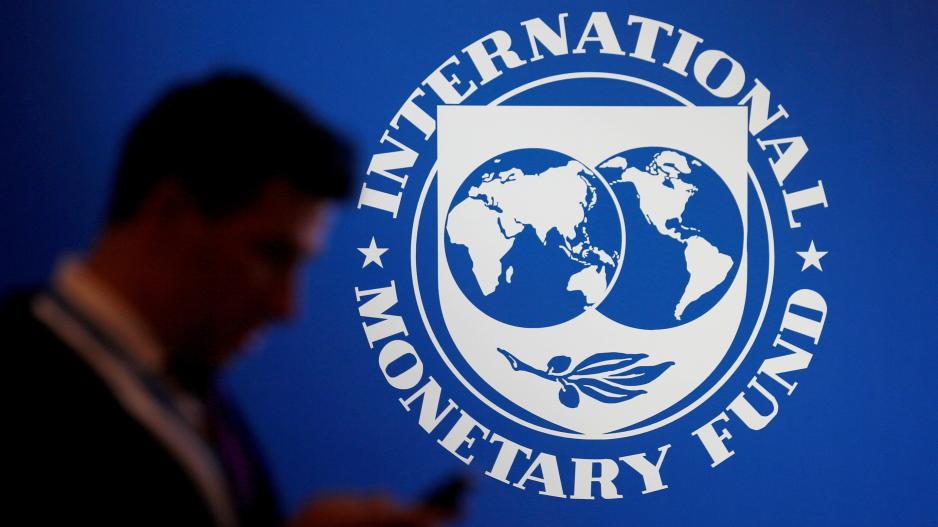Cyprus’ economy faces slowdown in 2023: IMF's projections and recommendations
The IMF predicts that the Cypriot economy will experience a slowdown in 2023, with growth expected to reach around 2.5%. This decline can be attributed to a decrease in household incomes, tighter financial conditions, and the delayed impact of sanctions against Russia. The IMF's findings were published in a press release on Monday.
Despite these challenges, the Executive Board of the IMF commends Cyprus for its financial resilience in the face of Russia's invasion of Ukraine. In 2022, the country experienced a growth rate of 5.6%, with employment rates recovering and unemployment reaching a low not seen since the financial crisis. However, high energy prices contributed to inflation and a larger current account deficit. On a positive note, the fiscal surplus reached 2.3% of GDP, and public debt decreased significantly. The banking sector demonstrated high liquidity and capital adequacy ratios, accompanied by improved profitability. The IMF also highlights that private sector deleveraging continues to be hindered by the slow resolution of non-performing loans (NPLs) from the past.
Looking ahead, the IMF forecasts that growth in Cyprus is expected to average around 3% in the medium-term. This projection is supported by public and private investments, structural reforms, and further expansion in the information and communication technology (ICT) sector. However, high inflation is expected to recede gradually, given elevated inflation expectations and wage pressures.
Moreover, the IMF emphasizes the importance of a tight fiscal policy in the current year to manage price pressures and continue reducing public debt. Although the external current account is expected to improve moderately, it will remain in a sizable deficit. The IMF advises that fiscal policy should be prepared to respond if growth falls short of expectations.
Regarding wage indexation and support measures, the IMF recommends a comprehensive evaluation of their macroeconomic impact. The Fund cautions against implementing a full automatic adjustment of wages to inflation through the ATA mechanism, as it could lead to persistent inflation, reduced competitiveness, and limited fiscal flexibility to address future shocks. The IMF also suggests carefully recalibrating the guaranteed minimum income program while strengthening its activation requirements.
Furthermore, the IMF stresses the importance of sustaining primary surpluses to reduce public debt over time, supported by a risk-based fiscal framework. It suggests directing available fiscal space towards productive investments for the green and digital transition. Additionally, it recommends placing the National Health Service on a sound fiscal foundation and enhancing the governance and accountability of State-Owned Enterprises to stay on track with the planned fiscal trajectory.

Turning to the banking sector, the Fund acknowledges the improved resilience of Cyprus’ banks but cautions that risks persist. While higher policy rates have boosted bank profitability thus far, credit risks are expected to rise as financial conditions tighten, particularly due to high private sector indebtedness. The IMF advises monitoring these risks closely.
To facilitate faster resolution of legacy NPLs and private sector deleveraging, the IMF emphasizes the importance of implementing policies to address these issues. It urges the forceful implementation of the foreclosure framework to tackle strategic defaulters. Banks are encouraged to proactively utilize all available tools to enable timely restructurings, supported by recent legislative progress. Efforts should also be made to advance work on the newly envisioned hybrid/out-of-court restructuring procedure. The Mortgage-to-Rent scheme is seen as beneficial for resolving NPLs from vulnerable borrowers, but measures should be taken to minimize fiscal risks associated with the scheme.
The IMF also highlights the need for further strengthening the Anti-Money Laundering-Combating the Financing of Terrorism framework in order to address reputational risks.
According to the IMF's press release, Cyprus possesses favorable conditions to capitalize on its well-developed professional services and strategic location. However, streamlining immigration processes would be beneficial to address labor market shortages. Additionally, measures aimed at improving the affordability of housing through supply-side interventions are recommended. Reforms within the Recovery and Resilience Plan (RRP) are deemed essential for overcoming structural obstacles. This includes enhancing governance and future-proofing workers' skills through educational reforms, which should be expedited. Furthermore, investments in digital infrastructure will play a crucial role in supporting the digital transition.
In addition, the IMF emphasizes the significance of adopting a greener growth model as part of the reforms. Achieving emissions neutrality by 2050 in Cyprus requires integration into the regional electric grid, the expansion of renewable energy sources, and the liberalization of the domestic electricity market. These objectives will not only enhance energy security but also necessitate substantial public and private investments, as stated by the IMF.






